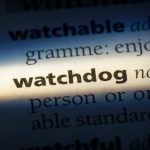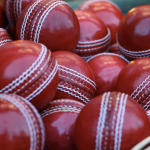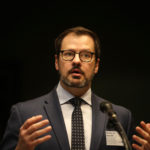What 2013 brought us: A brief sketch
As we start a new year, it is worth reflecting on events in the last twelve months here and abroad. Binoy Kampmark shares a few memorable moments of 2013.
Yet another arbitrarily dictated year has ended (if you follow the Gregorian calendar), and while every year is packed with an assortment of oddities and calamities, a few are worth highlighting, if nothing else, for that crowded registry that we otherwise call history.
First, the political account. The global transparency movement got juiced with efforts on the parts of WikiLeaks to move into politics. The effort did not succeed in getting Julian Assange, its chief publisher and candidate, a seat in the Australian Senate, though it did fire a shot across the bow of political complacency. The operational distinction between a progressive wing and a genuine conservative force in various countries is no longer relevant. More is the pity. Consensus over such matters as surveillance, mean social policy and immigration has been found by Canberra’s doyens. But cheers to the toxic centre of politics have been met with a cold shower from political movements keen to change the theme.
Australia, instead, will have to deal with the consequences of an Abbott government, one that has already made strides against the efforts to control carbon emissions. Bravo, came the reply from such governments as Canada’s and Japan. The wealthy can’t stomach limits on consumption, so the poor will shoulder the blame. History remains predictable, at least in some cases.
The greatest gains, and greatest shock in the political sense, came from the disclosures of former U.S. National Security Agency contractor Edward Snowden to The Guardian in June. He proved to be the indispensable whistleblower – the leaker extraordinaire who made it clear that the global intelligence empire, with its nodal points passing through the Pacific and Atlantic, is borderless and for most intents and purposes outside a legal framework. Warrantless surveillance has been shown to be the natural instinct of governments. It comes in the form of trawling data gathering programs – PRISM and Tempora, among some.
He has also shaken the entire intelligence establishment, one of the more oxymoronic terms of government. He demonstrated how fractured the security state has become – privatised, with classified information readily available across tens of thousands of employees; and unaccountable. Everyone’s phone is liable to perusal – from the Australian citizen to the Chancellor of Germany. A sense of proportion has been lost.
Judge the wisdom of a government’s response by its reforms. The political response to the Snowden Affair has been piecemeal. Functionaries, such as the NSA’s General Keith Alexander have dismissed Snowden’s efforts as that of an opportunistic traitor. Australia’s security bureaucrats have gone so far as to define Snowden’s actions as falling outside the remit of whistleblowing.
President Barack Obama has promised an array of reforms. The Australian response has been characteristically mute. The link to the United States has been cited as an excuse – power relations and the retainer status Australia has in Washington has meant keeping up appearances. This is to take place even at the expense of relationships with other countries, Indonesia being a case in point.
Other political notes come in the form of obituaries. Venezuela’s Hugo Chavez, thorn of the United States, socialist populist and revolutionary, died on March 5. As with such a figure, the revilers hoped for change, and supporters sought a form of secular consecration of the Chavez legacy. The revilers will have to wait, given the election of Chavez deputy Nicolas Maduro.
Later in the year, South Africa’s Nelson Mandela, considered the epitome of a statesman, also left the world of the living. Some obituaries were sincere. Others came from those who had supported the Apartheid regime, overtly or otherwise. The most striking illustration came from British Prime Minister David Cameron. Playing Janus came naturally to the 21st century’s version of Thatcherism. Evidently, one can praise Mandela’s legacy while also being the beneficiary, in the past, of sponsorship from an apartheid government.
Sadly, the list of human made catastrophes – wars, terrorist attacks, and conflict – continued to occupy columns and opinions. There was a spectacular strike on the Tigantourine gas facility near Algerian town of In Amenas in January by an al-Qaeda-linked outfit calling itself the Signatories in Blood Battalion. 800 hostages were taken, but 39 foreign hostages, one Algerian security guard and 29 militant were killed in the rescue effort.
The United States saw another terrorist strike in the form of bombings at the Boston Marathon on April 15. Three spectators were killed and more than 250 injured. The bombs had been left in backpacks carried by Tamerlan and Dzhokhar Tsarnaev, men of Chechen background who had been radicalised in the United States.
Syria continued to bleed from civil conflict. Some 1,400 people were killed in a chemical weapons attack at Ghouta (Aug 21). Bashar al-Assad’s regime blamed the Syrian opposition. The Syrian opposition, along with the U.S., France and Britian, pointed the finger at Assad. A United Nations report tilted the balance against Assad. A subsequent deal was brokered, leading to the dismantlement of the chemical weapons. The war, however, continues with ferocity.
On the religious front, we saw the election of a new, no frills Pope to replace Benedict XVI, who became the first pontiff to resign since 1415. The cut and dry Francis I, the first pope from outside Europe in 1,300 years, promises reforms to an ostentatious Catholic Church culture, scolding excess and lauding frugality. While making friends, he is also losing some.
The human context in any year would not be complete without a series of natural catastrophes. In terms of sheer doom and gloom, the effects of Typhoon Haiyan in the Philippines, including 6,000 deaths, proved that the human race is ever teetering between scant survival and coping with savage climactic forces. However modern human civilisation gets, it will never be capable to get away from the notion that is has a used by date. If evolution doesn’t get you, climate change must.
In the words of Chris Huhne, the typhoon “and its appalling death toll is a terrible example of the increasing force of extreme weather events” (The Guardian, November 18). For Huhne, there was nothing more imperative than to “capture and store the carbon emitted by fossil fuels, or they must be competed out of existence”.
Debates about anthropogenic climate change – at least in so far as the degree of it – continue with hostile savagery. Australia had a particularly pertinent role in this regard. The government in Canberra refused to consider any notion that the NSW bush fires had been the noxious fruit of human-induced climate change. This did not stop the Greens member in the House of Representatives, Adam Bandt, from suggesting the opposite. “Global warming is the biggest threat to Australian life” (ABC, October 18). The response by the government was furious. Federal Environment Minister Greg Hunt accused Bandt of politicising a “human tragedy”.
For something different on the cultural front, the year brought in a few stunners. The art world gravitated with vulgar ease into the world of high finance, as if it could go any further, with the auction of Francis Bacon’s “Three Studies of Lucian Freud” (1969) for a smooth $142 million. Art is precious, but in the money markets, it is also monstrous. Collectors of signatures, rather than art, proliferate.
Another art event came in the form of a discovery in Germany. A Munich flat revealed a treasure trove of 1,500 paintings pilfered by Nazi officials. While many were shunned by the Nazi authorities as degenerate art, they were not ignorant of potential cash value. It was ever thus that public and open condemnation will be followed by a secret admission of worth and approval. History is nothing else if not a progression of rituals of hypocrisy. 2013 won’t disabuse of that fact.
Dr. Binoy Kampmark was a Commonwealth Scholar at Selwyn College, Cambridge. He lectures at RMIT University, Melbourne. Email: bkampmark@gmail.com
















JacobsDennis
January 9, 2014 at 10:24 am
Ups and downs of 2013
Your blog has given me opportunity to recall what 2013 has given me and what ups and downs I have gone through last year.